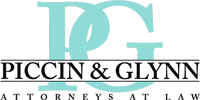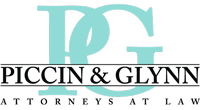Just after midnight on Saturday, May 21, 2016, a Chevy Malibu traveling on U.S. Highway 441 in Marion County crossed the center median of the highway after the driver lost control of the car. The car went airborne, crossed into the northbound lanes, collided head-on with an oncoming car, and landed on its roof. The Malibu driver was hospitalized with serious injuries, and tragically the driver of the other vehicle was killed.
Sadly, incidents like this are not uncommon. In January, a 69-year-old man was killed in a wrong-way crash while on his way home from work in Ocala. In a particularly infamous incident captured on video, four University of South Florida students died in 2014 after a wrong-way driver hit their vehicle on a Tampa highway. Yet another national news incident occurred in 2013 when a young woman, under the influence of alcohol, tweeted that she was “2 drunk 2 care” minutes before driving her car into the wrong lane on a Florida highway, killing two 21-year-old women. While wrong-way auto accidents may occur less frequently than other types of accidents, in 2015, over 1,500 wrong-way crashes occurred in Florida alone, killing over 100 people.
Severity of Collisions
Accidents caused by wrong way drivers have become such a serious concern that the National Transportation Safety Board (NTSB) released a Highway Special Investigation Report on this particular type of accident. Although only three percent of accidents are wrong-way collisions, the consequences are often much more severe. Accidents caused by wrong-way drivers are more likely to result in fatal or extremely serious injuries than any other kind of crash, because most are head-on collisions at high speeds. The NTSB reported that wrong-way collisions were 27 times more likely to result in fatalities and that 22 percent of wrong-way collisions were fatal, compared with a 0.3 percent fatality rate for all other highway accidents.
Impaired Driving a Major Cause of Wrong-Way Crashes
The NTSB found several factors to be associated with wrong-way collisions, but the most significant association appears to be driving under the influence of drugs or alcohol. Sixty percent of wrong way drivers had alcohol in their systems, and this percentage is likely underreported; estimates put the number closer to 75 percent. Florida’s statistics show that drugs and alcohol played a part in nearly half of the wrong-way crashes that occurred in 2015. According to the NTSB report, of the 60 percent of wrong-way drivers under the influence of alcohol, 10 percent had BACs between .08 and .15 (slightly over the legal limit of .08) and 59 percent had a “high BAC” at or above .15 (twice the legal limit). Nine percent of wrong-way drivers had been convicted of driving under the influence within three years of the collision.
Making Changes
Gary Catronio, father to one of the young women killed in the 2013 Florida crash, started Marisa’s Way, a nonprofit organization aimed at preventing the types of crashes that took his daughter’s life. One idea proposed by the group would have plastic poles installed in all major highways that would pop up from the pavement upon detecting a vehicle traveling the wrong direction. Some states are introducing pilot programs to install bigger signs, pavement markings, and even radar-triggered LED warning signs if a vehicle enters a highway from the off-ramp, which could make a significant difference in wrong-way collisions by keeping drivers off the high-speed roads. South Florida began a pilot program that alerts dispatchers when a wrong-way vehicle is spotted. Sensors on billboards and overhead signs warn wrong-way drivers with flashing lights, and send photos of the vehicle to the FDOT command center and dispatchers at FHP. So far, officials say that the program has corrected 22 of 23 detected wrong-way vehicle incidents.
Need More Information?
If you or a loved one has been injured in wrong-way collision in Ocala or surrounding areas, John Piccin can help you get the compensation you deserve. We can make home or hospital visits to discuss your case. Call us at 352-558-8480 or contact us online for your free, no obligation case evaluation today.

